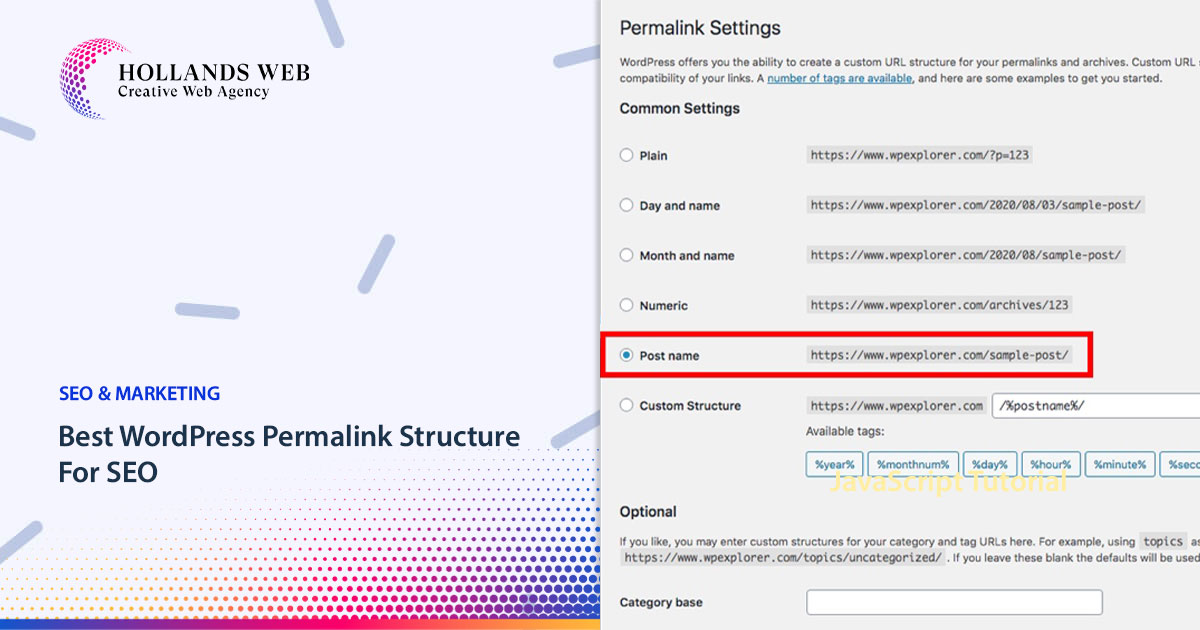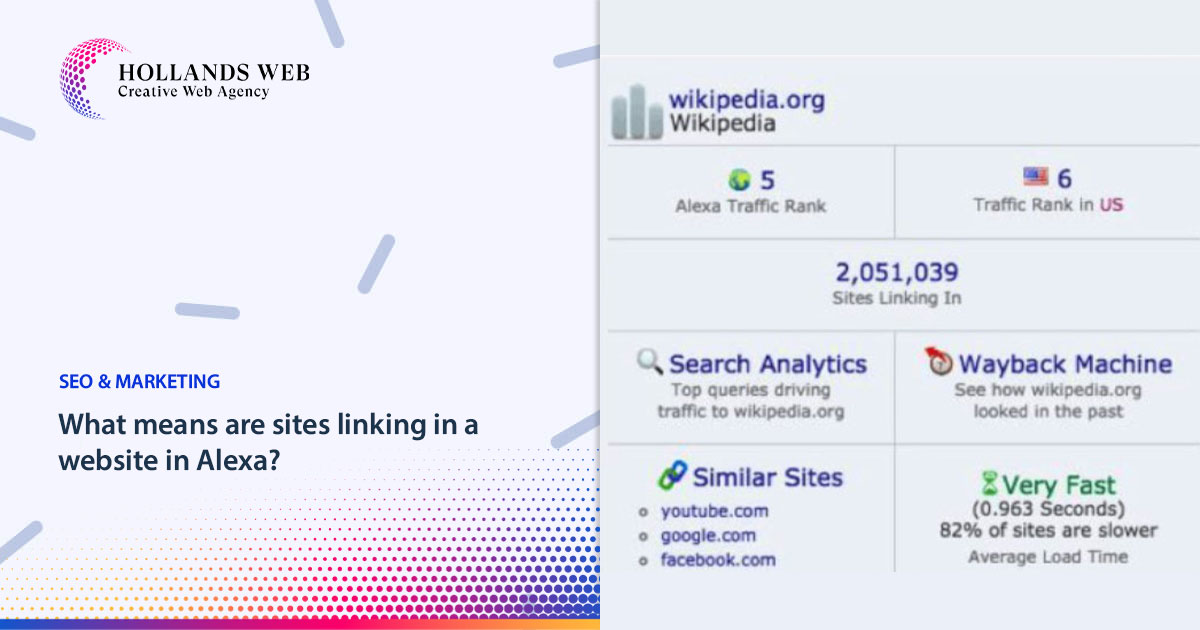No products in the cart.
The choice of a WordPress permalink structure for SEO can have a significant impact on your website’s search engine rankings. Permalinks are the URLs that point to your individual posts and pages, and they should be optimized for both search engines and human readability. Here are some common permalink structures and their potential SEO implications:
Common WordPress Permalink Structures:
Post Name (/%postname%/):
This is often considered the best permalink structure for SEO. It uses the post’s title in the URL, which can include keywords relevant to the content. This makes it user-friendly and helps search engines understand the topic of the page. For example, “yoursite.com/your-keyword-here.”
Category and Post Name (/%category%/%postname%/):
This structure includes the category before the post name. It can be useful if your content is organized into well-defined categories and if the category name adds context to the content. For example, “yoursite.com/category/your-keyword-here.”
Month and Post Name (/%year%/%monthnum%/%day%/%postname%/):
This structure includes the publication date. While it can be helpful for organizing content chronologically, it may not be as SEO-friendly as the Post Name structure for evergreen content. For example, “yoursite.com/2023/10/20/your-keyword-here.”
Numeric (/%post_id%):
This structure uses the post’s ID, which is not user-friendly or SEO-friendly. It provides no context about the content and should be avoided for SEO purposes.
When choosing a permalink structure for your WordPress, consider these tips:
Using a permalink structure optimised for search engines not only boosts your SEO rankings, but also boosts click-through rates and facilitates content sharing.
However, if you use obscure characters like slashes, underscores, and dashes in your permalinks, it will be more challenging for both users and search engines to determine the content of your page.
Read More About URLs:
That’s why it’s crucial to create URLs that are both legible and informative, so readers can anticipate what they’ll find when they click.
However, there are a few things to keep in mind to ensure you’re using the optimal permalink structure for search engine optimization. Now, let’s get down to business…
Stick with a structure:
Once you’ve set your permalink structure, try to keep it consistent. Changing it later can lead to broken links and negatively impact your SEO.
Avoid stop words:
Remove common stop words (such as “and,” “the,” “in”) from your URLs to keep them concise and focused on your target keywords.
Avoid dates or years:
You shouldn’t use dates or years in your URLs because they easily expose dated material. The sad reality is that nobody is interested in something that was written in 2011, even though it’s still relevant information.
Use HTTPS-secured URLs:
HTTPS has mostly to do with security but is important for SEO as well. In fact, Google has stated that HTTPS-secured sites have a ranking advantage since security is another of its top priorities.
Use hyphens:
Use hyphens (-) to separate words in your URLs rather than underscores (_) or other characters. Search engines prefer hyphens as word separators.
Keep it short:
Shorter URLs are generally better for both SEO and user experience. Read here How Long Should Be The Page URL Length For SEO?
Consider your content:
Think about how your content is organized and what structure makes the most sense. Sometimes, the Category and Post Name structure can be a good choice for certain websites.
Remember that while a well-optimized permalink structure is important for SEO, it’s just one of many factors that can affect your website’s search engine rankings. Quality content, proper on-page SEO, site speed, mobile-friendliness, and backlinks also play crucial roles in your site’s overall SEO performance.






 Web Hosting
Web Hosting Web Designs
Web Designs Graphic Design
Graphic Design SEO
SEO Digital Marketing
Digital Marketing